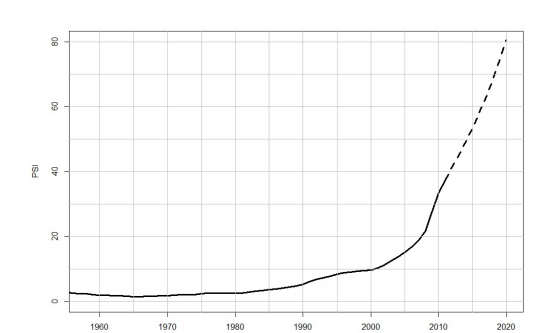Date: September 4, 2019
Author: Paul Cockshott
A recent article made comparisons between the ‘atonement’ of the German state for Nazi crimes and the issue of reparations to the descendants of slaves in the USA
There seem to be a whole mass of confused issues being put forward in this reparation demand.
The first point is that there is a desperate attempt not to talk about class. The relationship of slave to slaveowner is a class relationship in which one class exploits another. The slave owning class exploits and benefits from the labour of the slaves. Other classes which existed in the USA in say 1860 were not involved in this relation. The free peasants of the west were not in any way benefiting from the exploitation of the slaves, and were indeed the greatest and most militant oponents of the slave owning class.
The other main classes outside the confederate states were the industrial bourgeoisie and the proletariat – these again were not beneficiaries from slavery. The industrial bourgoisie exploited workers not slaves, and the industrial workers were, like slaves exploited not beneficiaries of exploitation.
Then there is the question of the state or the multiplicity of states. Some states prior to the civil war were dictatorships of the slave owners others were bourgeois and yet others were free peasant states. But until Lincoln was elected the federal state was a state machine of the slave owners.
The Lincoln government constituted a bourgeois revolution which decisively overthrew the power of the slave owners by the mass armed struggle of the free population of the North and the West. The USA fedral state after this became a state of the capitalists not of the slave owners.
If you asked, on the day of the Confederate surrender who owed restitution to the slaves, it would be quite clear that the restitution was due from the slave holding aristocracy, and that that restitution should have come about via the distribution of the slave estates to the former slaves – converting them into a class of free peasants.
The idea that the free farmers or northern working class who had not benefited from slavery and who had undergone huge sacrifices of blood, wounds, lives and money to defeat the slave owners should pay compensation would have seemed absurd. In the context of the article posted, it would have been as absurd as suggesting that the victorious allies of 1945 should compensate those who had been forced into slave labour by the Germans. It was quite clear post 1945 that claims against exploitation had to be directed either at firms like Krupp who had employed slave labour, or against the West German state as the representative of this class. There was, and could be, no claim against the new German Democratic Republic – a state of the working class whose own leaders had been in the concentration camps. It is remarkable that the author of the article that I cited above seems unaware that a German worker’s state ever existed, he speaks just of ‘Germany’, ignoring the fact that two states existed in Germany until 1990.
The United States post the Civil War was a state of a different class character, representing different classes, and as such was under no more obligation to compensate slaves than the German Workers state was.
If one recognises that no claim existed against the non confederate states on the day of the victory, then clearly no claim can have arisen for this purpose since then. This is not to say that the exploited classes of the USA do not collectively have a claim against the propertied classes of the USA for exploitation occuring since the Civil War, but that can only be resolved by the expropriation of the expropriators and the establishment of a Communist state.
However, since the lands of the slaveholders were not distributed after the civil war, it is arguable that residual claims exist against the descendants of the slaveholding class, and against bodies corporate such as municipalities universities or churches that once owned slaves. My own university, The University of Glasgow has just declared that investigation of bequests from the 18th and early 19th century indicated that it had been the recipient of funds derived from slave ownership. The University has thus undertaken to pay reparations to the University of the West Indies in belated compensation.
So if this is to have a progressive political character it has to take the form of a demand that the liniear inheritors of the old slave holders and corporate bodies that owned slaves should have a substantial portion of their property seized by the state to pay compensation to the descendants of slaves.
But the demand for reparations is a bourgeois reformist demand and the bourgeois politicians advocating it will try desperately to eliminate and reference to class and class relations. They will shy away even more decisively from any prospect of forcible confiscation of property from part of the ruling class since that throws the safety of the entire class into question.

